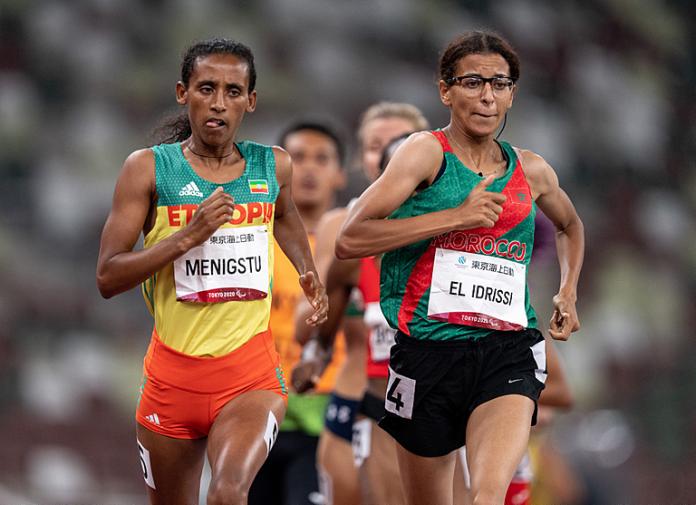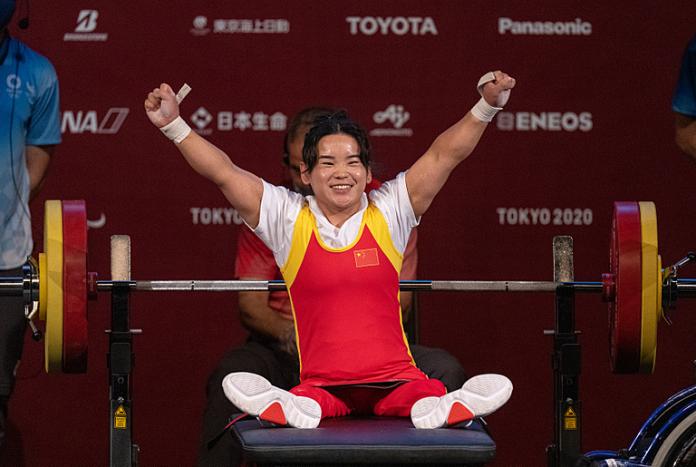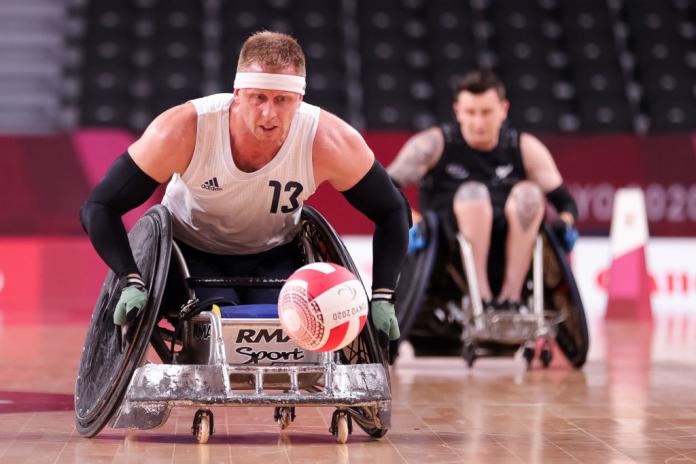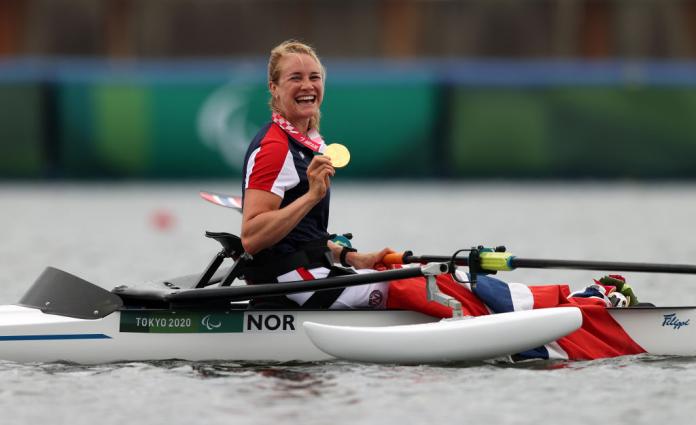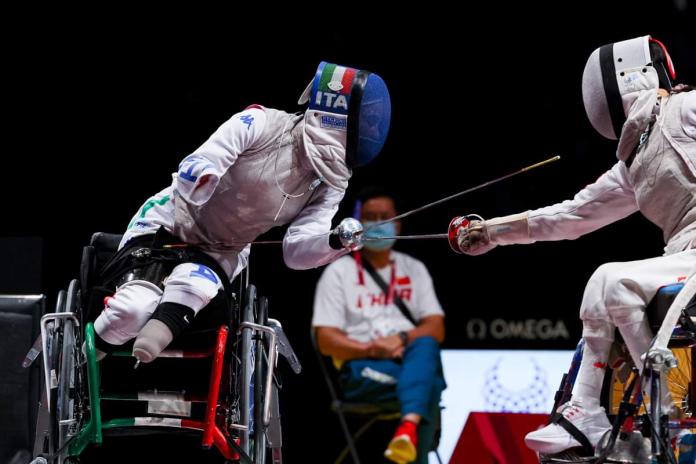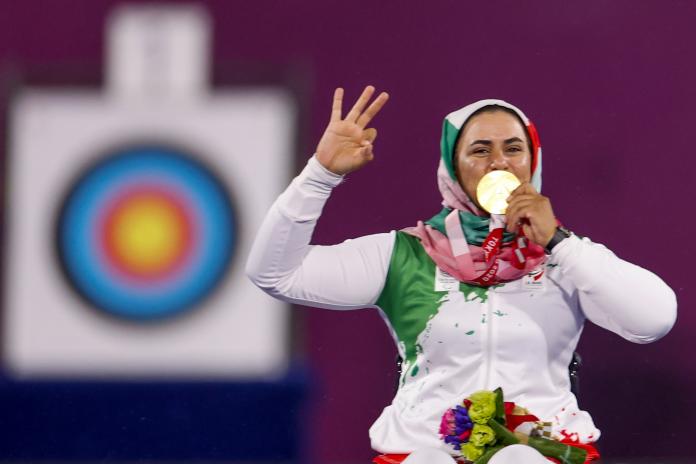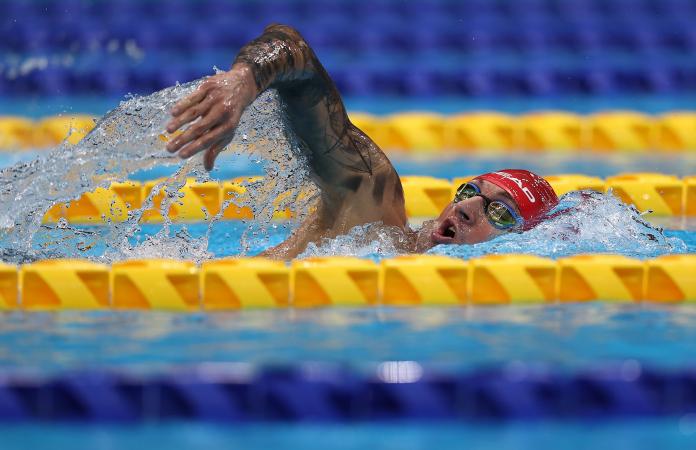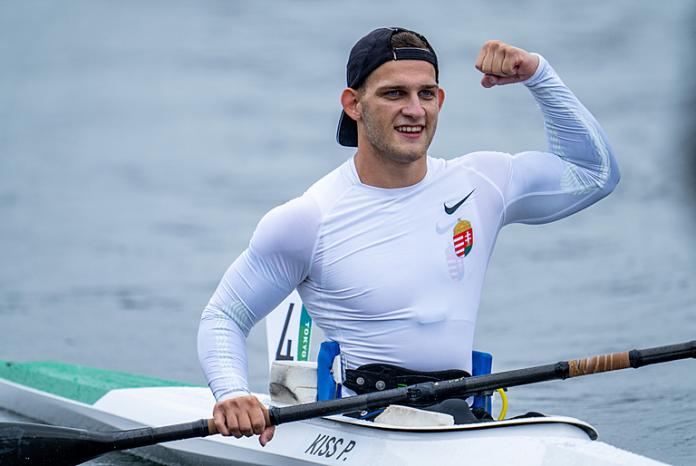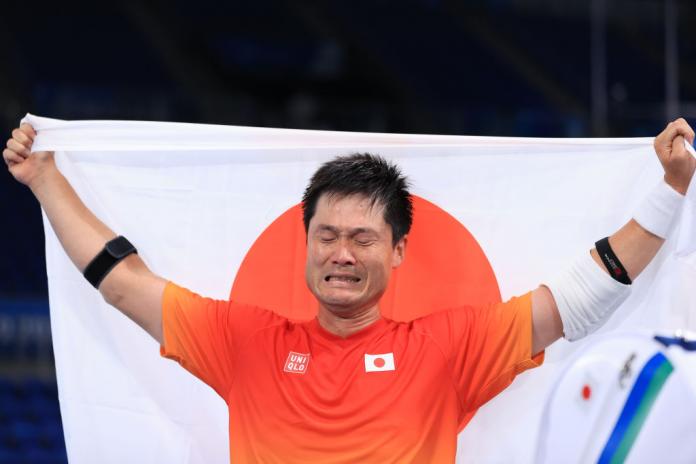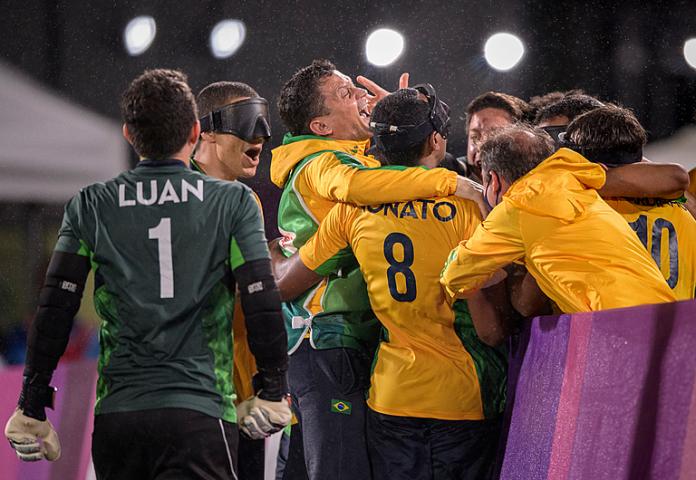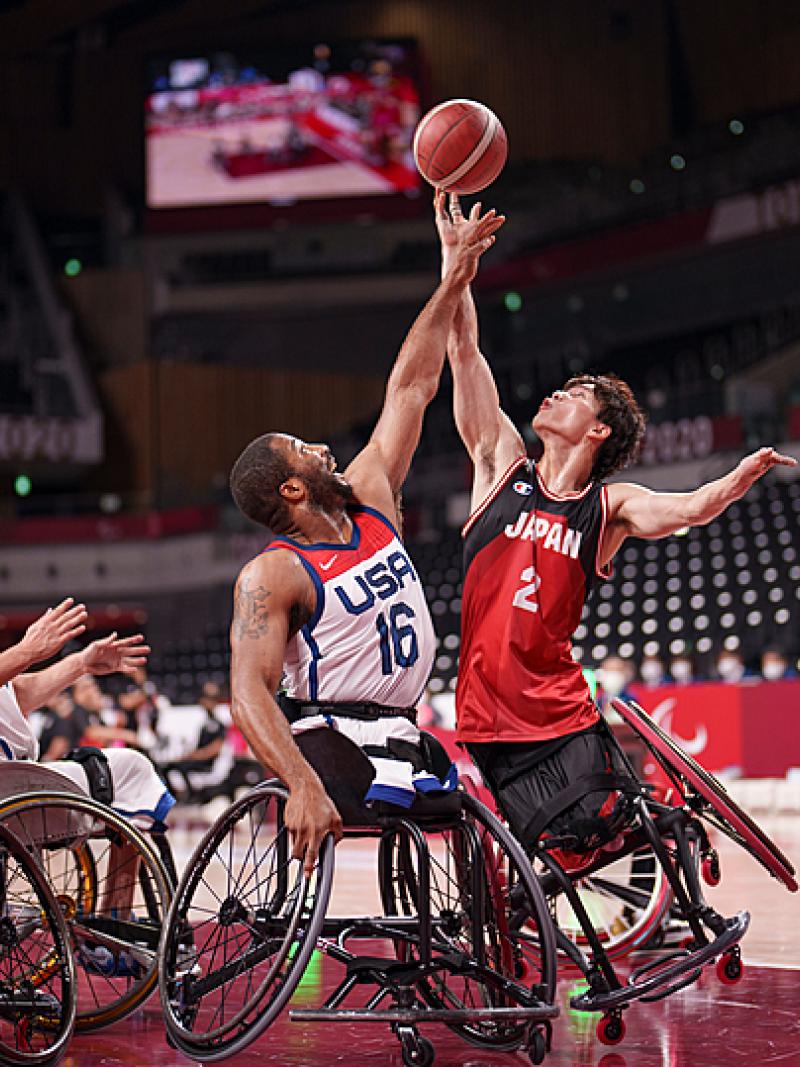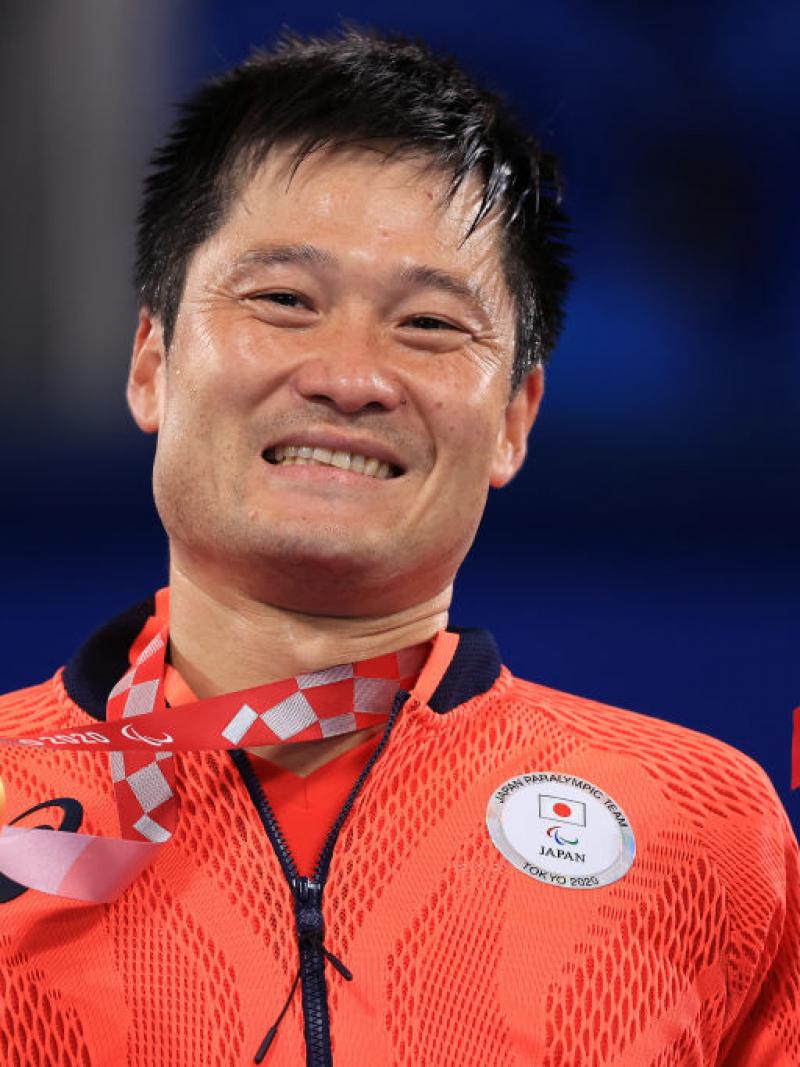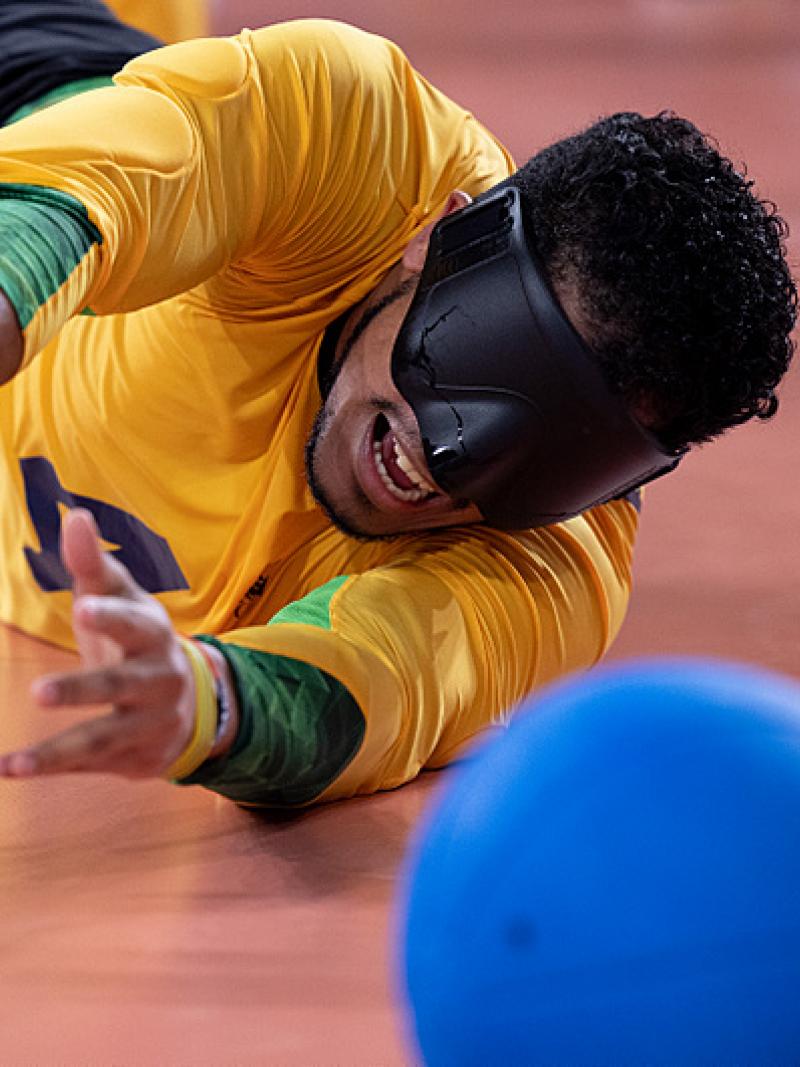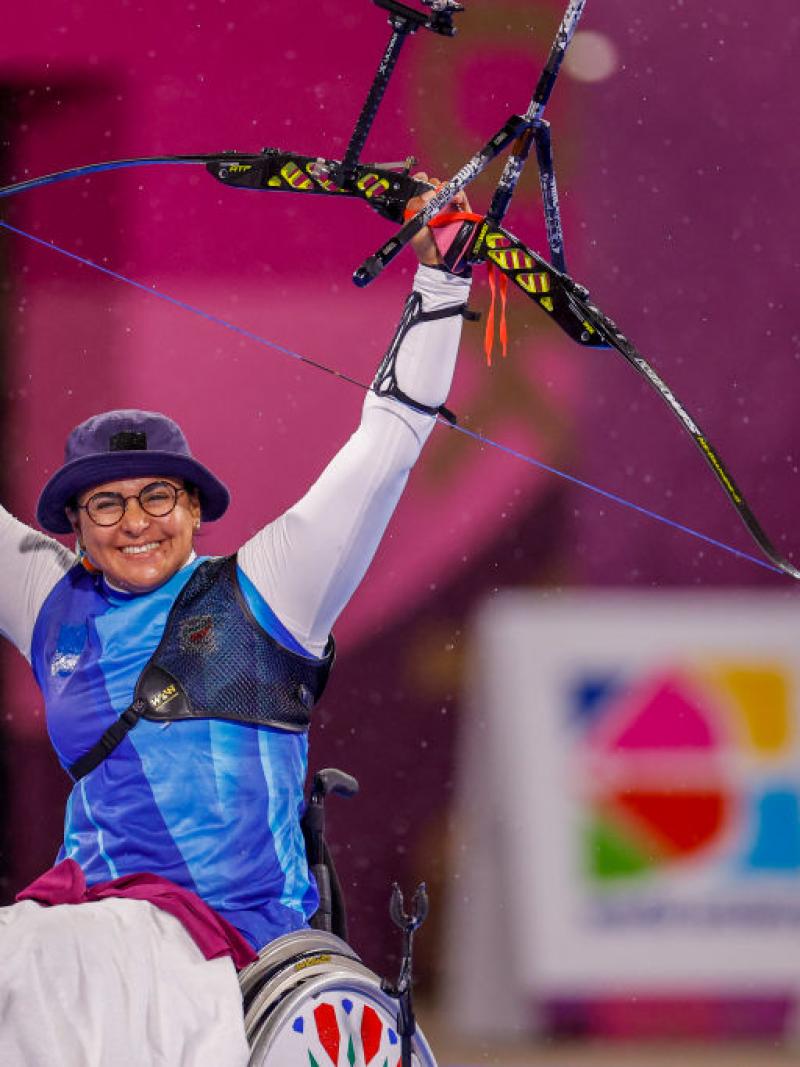Tokyo 2020 sees more countries than ever winning medals at a Paralympics
A total of 86 countries claim at least one medal 07 Sep 2021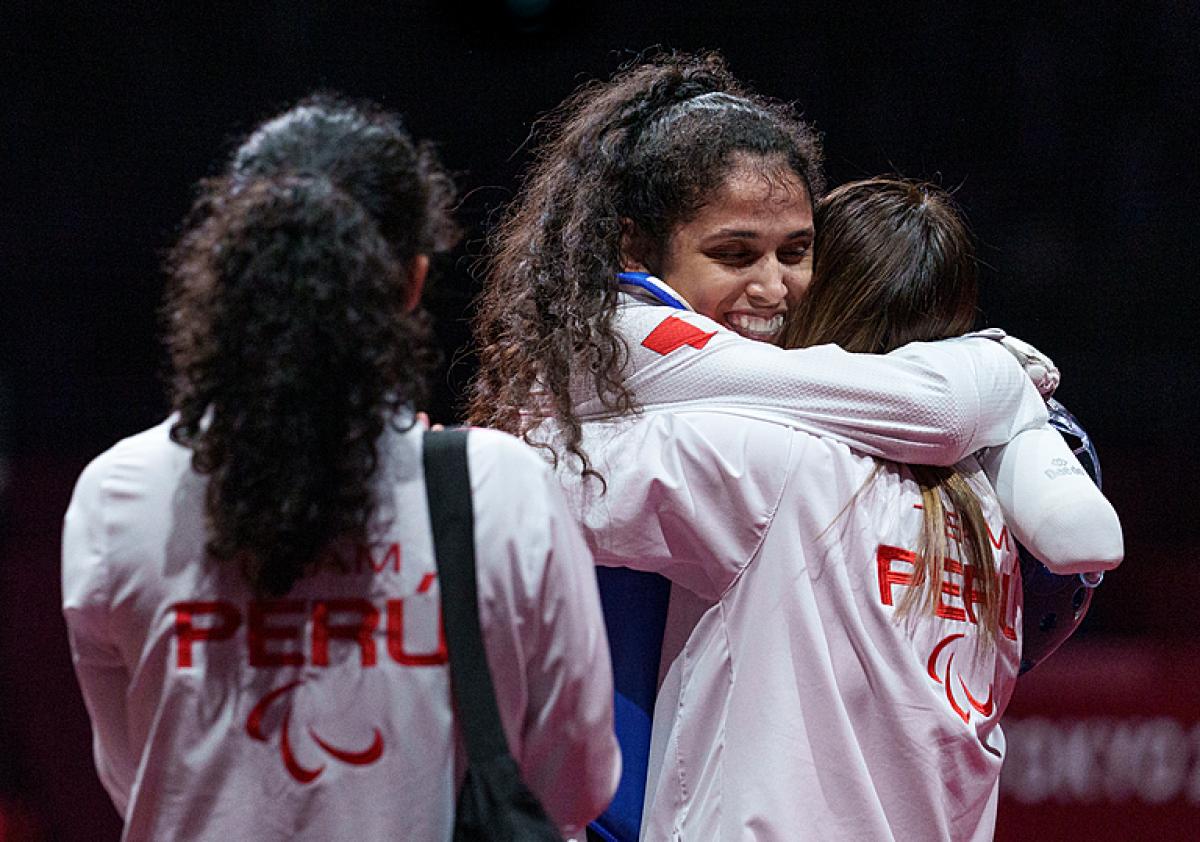
Over 12 action-packed days, Tokyo 2020 saw more countries than ever winning medals at a single edition of the Paralympic Games, with 86 out of the 162 participating National Paralympic Committees making the podium - surpassing the 83 from Rio in 2016.
For some nations, gold came for the first time. That was the case for Ethiopia, as 21-year-old Tigist Gezahagn Mengistu won the women's 1500m T3 in her first major championships, and Pakistan, with Haider Ali claiming the title in the men's discus F37 with a Paralympic record throw of 55.26.
Other countries to win a Paralympic gold medal for the first time were Ecuador, with sisters Poleth and Anais Mendez claiming gold and bronze in the women’s shot put F20 respectively; Sri Lanka, with Dinesh Priyantha Herath Mudiyanselage breaking the world record by a staggering 4m in the men’s javelin F46; Costa Rica, with Sherman Guity Guity setting a new Paralympic record in the men's 200m T64; and United Arab Emirates, with shooter Abdulla Sultan Alaryani winning the R7- mixed 50m air rifle positions SH1.
Australia's Paige Greco became the first gold medallist of the Games in the women’s C 1-3 3000m individual pursuit track cycling event. At the end of day 1, 20 countries had won medals and nine world records were broken, which would set the rhythm for the upcoming days.
China end top of medals tally
China topped the table for a fifth successive Games with 207 medals (96 golds, 60 silvers and 51 bronze). As early as day 1, the Chinese team showed their strength by claiming a full sweep in wheelchair fencing, winning the debuting men and women's sabre category A and B events. In archery, the country won eight medals, including four golds out of a possible nine.
Another memorable performance came from powerlifting two-time world champion Guo Lingling, who made her Paralympic debut at 32 years old. She broke her own world record twice (109kg) in the women’s up to 41kg.
In shooting, Zhang Cuiping needed the very last shot to become a triple Paralympic champion in R8 (women’s 50m rifle 3 positions SH1). It was Zhang's fourth consecutive medal in this event, adding to golds at London 2012 and Rio 2016, and bronze at Beijing 2008.
Second place was Great Britain, with 124 medals (41 golds, 38 silvers and 45 bronze). The British team performed very well in sports such as track cycling, winning all three gold medals up for grabs in the last day of velodrome competition - husband and wife Lora and Neil Fachie won gold within 16 minutes of each other. In boccia, David Smith was the only one to retain his title from Rio 2016 in the BC1.
The astonishing British performance extended to wheelchair rugby, as they became the first European nation to win gold at the Paralympic Games with a 54-49 victory over the USA.
The Russian Paralympic Committee finished third in the medals tally, with 118 (36 golds, 33 silvers and 49 bronze), while the USA had a haul of 104 (37 golds, 36 silvers and 31 bronze). Brazil was the best from South America, finishing with 72 - 22 golds, 20 silvers and 30 bronze.
Athletes show versatility
The Games also saw Para athletes flex their versatility. An example is the USA’s Oksana Masters winning her ninth Paralympic medal, but first gold at a Summer Games. A two-time gold medallist from PyeongChang 2018 in Nordic skiing, Masters found redemption from her fifth place finish five years ago in Rio to take the H4-5 class.
Coming off a triathlon win in the men's PTWC, the Netherlands’ Jetze Plat showed no signs of tiredness, strongly claiming the men’s H4 and his first Paralympic medal in the road cycling time trial; he had competed in the sport at Rio 2016 and London 2012, with his best finish being bronze in the road race.
In rowing, Norway’s dual-sport sensation Birgit Skarstein finally claimed the Paralympic gold she has been training for. A Nordic skier who also competed at the PyeongChang 2018 and Sochi 2014 Paralympic Winter Games, she found herself on the top of a Paralympic podium, winning the women’s single sculls (PR1W1x) in dominating fashion.
Annika Zeyen was the only one coming over from a team sport to win gold in the women’s road cycling H1-3. The wheelchair basketball champion from London 2012 surprised herself, having never won gold in the time trial at a major Championships until now.
In archery, former Para alpine skiing player Kevin Mather from the USA celebrated gold in the men's individual recurve open.
Multi-medallists make history
Familiar faces were back on top of the Paralympic podium in Italy’s Bebe Vio, Mexico’s Amalia Perez and the USA’s Allysa Seely, among many others.
Italy’s golden girl Vio successfully defended her women’s foil category B Paralympic crown, celebrating after landing the winning point on her Chinese opponent Zhou Jingjing. Later, she would help the Italians end with a silver in the team foil event.
Mexico’s Amalia Perez took her country’s first gold in Tokyo with her final 131kg attempt to collect her fourth consecutive Paralympic title in the powerlifting's women’s up to 61kg category event. For Perez, the podium at Tokyo 2020 was the sixth in her career.
Seely repeated her success from Rio 2016, winning the women’s PTS2 triathlon event - something that seemed almost impossible eight months ago, when she was fighting for her life after being diagnosed with endocarditis, an infection in her heart with blood clots.
Equestrian competitions saw the Netherlands’ Sanne Voets (Grade IV), Belgium’s Michele George (Grade V), Great Britain’s Lee Pearson (Grade II), the USA’s Roxanne Trunnell (Grade I) and Denmark’s Tobias Jorgensen concluding Tokyo 2020 with a pair of individual gold medals.
Cuba’s Omara Durand stormed to her sixth gold over two Games as her decade of dominance continued. The 29-year-old ’queen of speed’ defended the gold in the women's 100m, 200m and 400m T12. In her career, she has eight golds - also won in the 100m and 400m T13 at London 2012.
Another strong woman to shine in Tokyo was Iran’s Zahra Nemati. She hit a perfect 10 in a shoot-off to win her third individual recurve Paralympic gold in a row in Tokyo. She is the second archer in history, after Paola Fantato, to win golds at three different editions of the Paralympic Games. She has consistently made history since becoming the first woman from Iran to win a gold medal at either the Olympic or Paralympic Games, back in 2012.
Returning to the Olympic Stadium, Germany’s Markus Rehm burnished his status as one of the world’s premier Para athletes with a third successive long jump gold. The world record holder soared to a handsome victory in the men’s T64 final with his best jump of 8.18 metres.
In the Tokyo Aquatics Centre, Canada’s Aurelie Rivard rocketed to an amazing world-record performance and successfully defended her title in the women’s 400m freestyle S10, shaving five seconds off her own world record. It was the 25-year-old’s ninth career Paralympic medal over three Games and her fifth gold.
Meanwhile legend Daniel Dias, Brazil’s most decorated Para swimmer, said goodbye. He finished fourth in the men’s 50m freestyle S5, closing his career with a staggering 27 Paralympic medals, including 14 golds. His haul also includes the three bronze medals he notched up in Tokyo.
In the end, the most decorated athlete at the Games was Ukraine’s Maksym Krypak – the swimmer won five golds in S10 class events (men's 100m freestyle, men's 400m freestyle, men's 100m backstroke, men's 100m butterfly, men's 200m individual medley), one silver (men's 50m freestyle S10) and a bronze (men's 4x100m freestyle relay - 34 points).
Watch out for the next generation
At the same time, new faces appeared in fashion. That was the case of USA’s Anastasia Pagonis, who went into the history books not once but twice when she broke her own world record in the women’s 400m S11. The 17-year-old finished in 4:54.49 and nearly half a length ahead of two-time Paralympic champion and three-time world champion Liesette Bruinsma from the Netherlands.
In Para canoe, Hungarian 18-year-old Peter Kiss was a blast. He secured his first title in Tokyo in the men's 200m KL1 with a Paralympic record time of 45.447, two years after winning the same event in the World Championships.
Two new sports take the stage
Taekwondo made its Paralympic debut in style with favourites getting upset, including Mongolia’s world champions Enktuya Enkurelbaatar and Bolor Erdene Gabat not reaching their respective finals. Instead, Brazil’s Nathan Sodario Torquato went on to win the men’s up to 61kg K44, while Peru’s Leonor Espinoza Carranza won the women’s up to 49kg K44. It was Peru’s first Paralympic gold since Sydney 2000.
Denmark's Lisa Gjessing, a four-time world and four-time European champion won the women's -58kg medal at 43 years old, crowning one of the pioneers in the sport.
Para badminton was the second sport debuting at the Tokyo 2020 Games. Malaysia’s Cheah Liek Hou claimed the first gold medal in the men’s SU5 category, and Japan’s Satomi Sarina became the first female player to win Paralympic gold following a three-game thriller against Thailand’s Sujirat Pookkham in the women’s singles WH1 final.
Joy for hosts Japan
The Japanese team ended the Tokyo 2020 Paralympic Games with 51 medals in total. That was their highest Paralympic finish ever - men and women's -, which included milestones such as being the first Asian nation to reach a gold-medal game in men’s wheelchair basketball (lost to the USA in the final).
It took 48 hours from the Opening Ceremony for the host nation to celebrate a gold medal. Takayuki Suzuki ended a 13-year golden drought with a huge splash at the Aquatics Centre, securing Japan’s first Paralympic title of their home Tokyo 2020 Games in the men's 100m freestyle S4. This was just his second career gold after five Games; his last one was at Beijing 2008.
Another great moment was Keiko Sugiura's victory in the women’s road race C1-3, to couple with her time trial victory. The 50-year-old, who thought about retiring when Tokyo 2020 was postponed, became the first Japanese cyclist to win a pair of gold medals at a Games. The last Paralympic champion for Japan in cycling was Mutsuhiko Ogawa from Atlanta 1996, who won in road time trial.
In wheelchair tennis, men's singles winner was world No. 1 and host nation hero Shingo Kunieda. The multiple Grand Slam winner continued to etch his name into the sport's greats after winning his third Paralympic title in the men’s singles.
It took less than an hour for Kunieda to defeat the Netherlands’ Tom Egberink and add to the back-to-back titles he won at Beijing 2008 and London 2012, and doubles title from Athens 2004. The home victory was also redemption from not making the podium at Rio 2016.
Kunieda won in wheelchair tennis and starred in Japan's great campaign at home
On the last day of competition, the hosts still had time to go for more golds. It was 19-year-old Daiki Kajiwara who produced one of the biggest upsets in Para badminton when he won the men’s singles WH2 title defeating South Korea’s Jun Jung Kim, the heavy favourite. Sarina Satomi and Yuma Yamazaki also brought a doubles gold for their home nation by defeating China’s Liu Yutong and Yin Menglu 2-1 after losing the first set.
Japan locked in three medals in the marathon event, led by Misato Michishita’s gold in the women’s T12 event, improving on her silver from Rio 2016. Tadashi Horikoshi (T12) and Tsutomu Nagata (T46) claimed bronze in their respective events.
One step from the Golden Slam
In wheelchair tennis, Dutch top seed Diede de Groot upset the entire host nation to beat Yui Kamiji in straight sets and claim singles gold, extending Netherlands' reign in the event at the Paralympic Games to 29 years, while Australian Dylan Alcott claimed the title in quad singles.
With their wins, Alcott and De Groot are on track to become the first players in the history of the sport to reach a Golden Grand Slam, which is winning all four Grand Slam tournaments (Australian Open, French Open, Wimbledon and the US Open) and the Paralympic Games in the same season - now they're only missing the tournament in Flushing Meadows, NY, to where they will go straight after Tokyo.
No rival for Brazil's football 5-a-side
The Brazilian football 5-a-side team defeated Argentina 1-0 and claimed their fifth straight Paralympic title. The Brazilians are undefeated since the introduction of the sport to the Games back in the Athens 2004 edition.
Sitting volleyball saw Iran expand their dominance in the men's event, now with four titles, while the USA were able to defend the gold won in Rio. In wheelchair basketball, the Dutch women's team hammered China, and the American men's squad claimed another title.
Goalball concluded with Brazil's men claiming a first Paralympic gold medal after convincingly beating 2008 winners China 7-2, while Turkey became only the second women’s side to retain their Paralympic title with a 9-2 win over Rio 2016 bronze medallists USA.
Allons-y à Paris
On 5 September, the Closing Ceremony was as captivating as the Opening and celebrated sports, Para athletes and the people of Japan.
The Governor of Tokyo, Yuriko Koike passed the Paralympic flag to International Paralympic Committee President Andrew Parsons, who then passed it to the Mayor of Paris, Anne Hidalgo.
In three years, the Paralympic Flame will be lit again for the Paris 2024 Games. It has been proven that there is no factor, whether it is part of competition or not, that can stop these Para athletes from giving it all.
 Facebook
Facebook
 Instagram
Instagram
 Twitter
Twitter
 Youtube
Youtube

